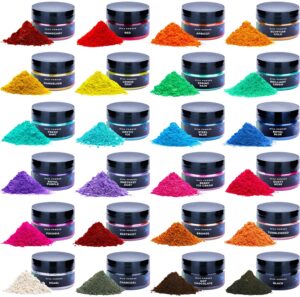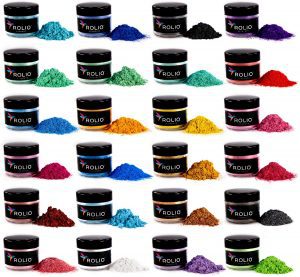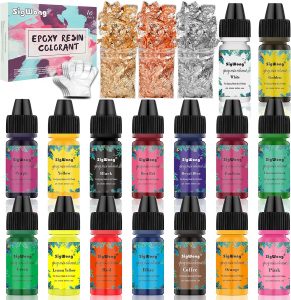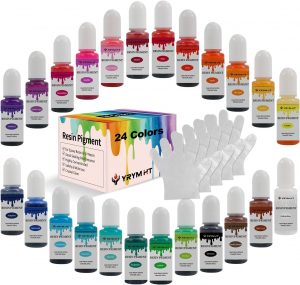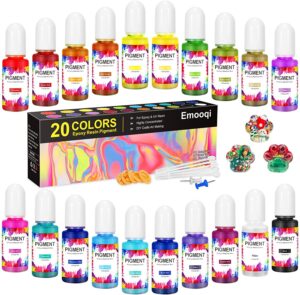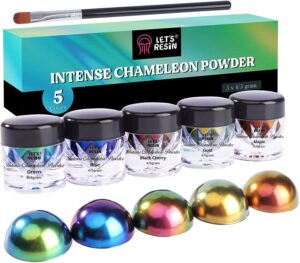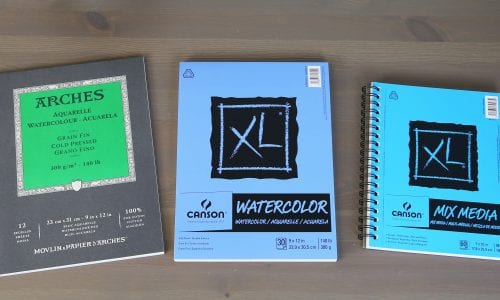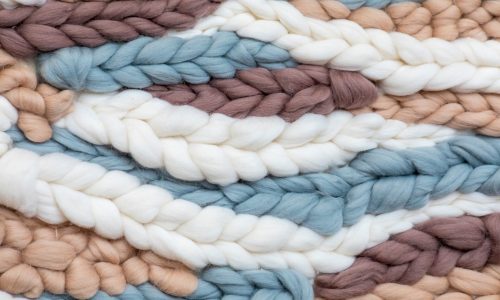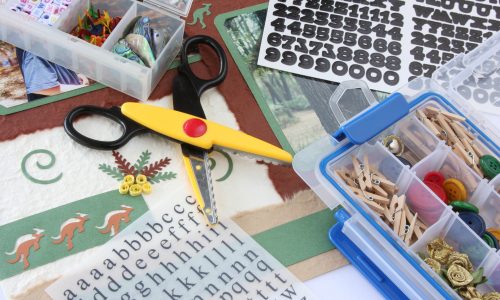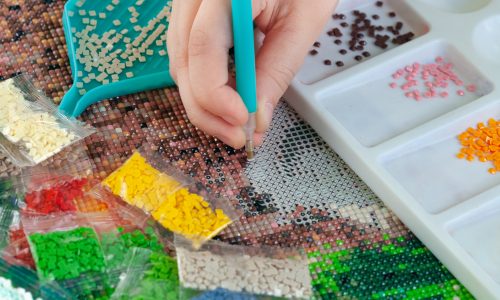The Best Color Pigment For Epoxy Resin
We looked at the top 6 Color Pigments For Epoxy Resin and dug through the reviews from 3 of the most popular review sites including and more. The result is a ranking of the best Color Pigments For Epoxy Resin.
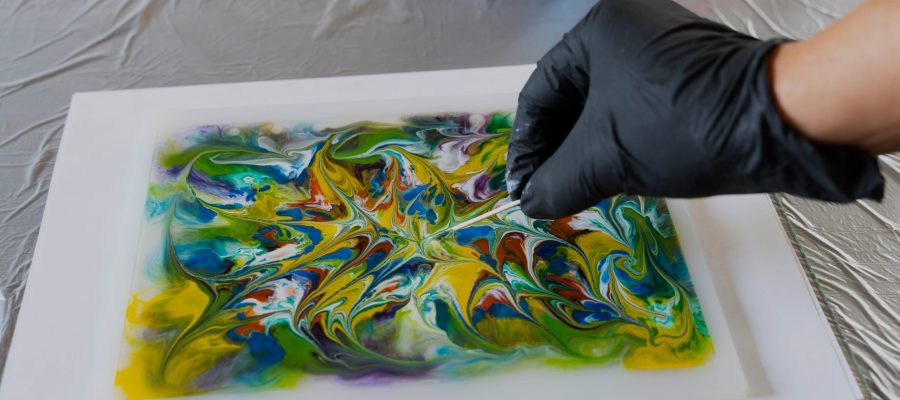
Our Review Process
Don't Waste Your Money is focused on helping you make the best purchasing decision. Our team of experts spends hundreds of hours analyzing, testing, and researching products so you don't have to. Learn more.
Our Picks For The Top Color Pigments For Epoxy Resin
- 1. Soap Shop Shimmering Mica Powder Color Epoxy Resin Pigments, 24-Count
- 2. Rolio Cosmetic Grade Mica Powder Epoxy Resin Pigments, 24-Count
- 3. Sig Wong Non-Toxic Color Pigment For Epoxy Resin, 16-Count
- 4. YRYM HT Translucent Color Pigment For Epoxy Resin, 24-Count
- 5. Emooqi Concentrated Non-Toxic Epoxy Resin Pigments, 16-Count
- 6. LET’S RESIN Color Shifting Mica Epoxy Resin Pigments, 4-Count
This 24-color shimmering mica powder color pigment for epoxy resin works exceptionally well for most soap-making and to add reflective color to epoxy resin jewelry and art. You can even add it to makeup for extra sparkle. Each bag weighs 0.1 ounces.
It’s Like Pixie DustYou will spend many enjoyable hours mixing up and using this set of 24 highly-pigmented mica powders.
Savvy artists and crafters know that this professional-grade mica powder pigment kit has the right kind of highly-pigmented, blendable shades that can create any color imaginable with long-lasting vibrance. You get 24 jars of .35 ounces each.
Bright, Sparkling and ExcitingMica with color names like Parakeet Green, Tiger Orange and Bleu Du France will help your projects will stand out.
This color pigment for epoxy resin set is not only non-toxic, but it also won't stain your skin. Artists will love the 16 vibrant colors, which are perfect for a wide range of projects. Use the pigments to add a decorative touch to a pair of earrings or to create a stylish paperweight. As an added bonus, this set even includes gold foil flakes.
Great PriceWhen shopping on a budget, this affordable color pigment for epoxy resin is the way to go.
You get a total of 24 color pigments for epoxy resin when you opt for this set. All of the colors are transparent, with the exception of white, and since they are highly concentrated, each bottle will last a long time. The bottles themselves have leak-proof nozzles that are perfect for beginners and each set includes five pairs of disposable gloves...
Most VersatileThe color pigments for epoxy resin in this set are blendable, allowing for an unlimited number of shades for your craft projects.
Buying Guide
Epoxy resin is a versatile product for crafting (and other household applications) because it comes as a clear liquid adhesive that can be shaped and molded. Once a hardener is added, it then becomes solid. This makes it perfect for creating items like jewelry, ornaments, coasters, and other attractive decorative items.
Medium- and high-viscosity epoxies have consistencies like thick honey and are suitable for coating surfaces. You can use them to make many kinds of resin art. For the most part, epoxy resins are colorless and transparent, and you have to take safety precautions when working with them.
Artists and crafters who use epoxy resins usually like to add color to create attractive designs within the medium. Never use paints that contain water, though, as this could prevent the resin from curing or cause other problems.
The two main kinds of coloring agents you can use for epoxy resins are liquid-form color concentrates and powdered color pigments. You can also use some of these to create soap, makeup and other small goods.
Always opt for high-quality products because they have the most vibrant colors, are easiest to blend and last the longest. Some feature translucent, pearlescent and other reflective finishes that make your pieces look exciting and luminous. Before adding color, though, you will have to mix the resin.
Pour a small amount of the color pigment into the mixture before it hardens, and stir with a mixing stick. Only add a small amount at a time because you can always drop in a bit more; once the color is wrong or too dark, you may have to start over. Follow the package directions for mixing and use your judgment for the color; both novices and pros like to experiment here, and the results vary.
Why we recommend these color pigments for epoxy resin?
Products Considered
Products Analyzed
Expert Reviews Included
User Opinions Analyzed
Our experts reviewed the top 6 Color Pigments For Epoxy Resin and also dug through the reviews from 3 of the most popular review sites including and more. The result is a ranking of the best of the best Color Pigments For Epoxy Resin.
DWYM is your trusted roduct review source. Our team reviews thousands of product reviews from the trusted top experts and combines them into one easy-to-understand score. Learn more.
What to Look For
- Some people have reactions to resin. Wear rubber gloves and eye protection to protect yourself when working with these materials.
- Only use pigments and paints designed for epoxy resin; other products can damage your work.
- You don’t need to add a ton of liquid or powder to get the color you want. Start with just a little bit and go from there, especially with highly pigmented colors.
- The powder can be a bit messier to work with, so you will want to move more slowly.
- To make resin art, you don’t just need the colors, of course. You’ll have to get the resin itself, plus a hardener, and you can often find these offered together in kits. Resins can also harden when exposed to UV light.
More to Explore
An epoxy resin is a type of reactive polymer (a material made up of long, repeating chains of molecules) and prepolymer (an intermediate stage of polymerization). It contains epoxide groups, which consist of one oxygen atom attached to two carbon atoms. As a result, the resin reacts with itself when catalysts are present, or with co-reactants — like organic compounds called animes, phenols, and thiols.
Epoxy resins offer heat and chemical resistance but aren’t considered to be water-resistant. Because of their strong adhesive qualities when used with many materials, including wood, fabric, glass, china and metal, commercial-grade epoxy resins are used to manufacture bicycles, vehicles, aircraft and other things like snowboards. Epoxy resins are also commonly used to protect electrical equipment, such as transformers, motors, generators, and circuits. Epoxy resins are quite versatile since they can be made flexible or rigid, and offer both opaque and transparent options.
Certain kinds of epoxy resin can be poured into molds or incorporated into other crafts, and the pigments add needed design interest to the clear material The four kinds of resins used for art are epoxy, silicone, polyester fiberglass and polyurethane. Epoxy resin is the best choice for projects that use molds.

